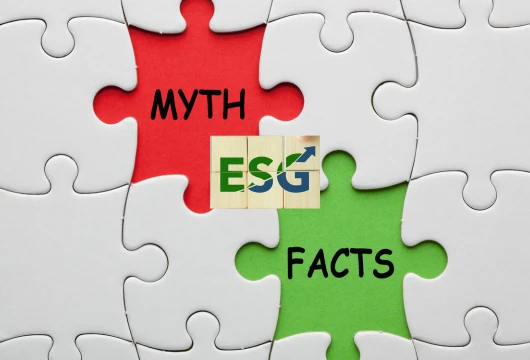Debunking 5 ESG Myths: What You Need to Know
Unraveling misconceptions about ESG and its impact on business, investments, and sustainability.
Environmental, Social, and Governance (ESG) considerations have become central to corporate strategy, investments, and policymaking. However, myths surrounding ESG continue to mislead businesses and investors, preventing them from fully leveraging its benefits. In this article, we debunk five common ESG myths and provide evidence-based insights into why they are incorrect.
Myth #1: ESG is Only About Environmental Issues
Facts: ESG Covers Social and Governance Aspects Too
Many assume that ESG is synonymous with climate action, but that’s only part of the picture. The “S” and “G” in ESG are equally crucial. Social factors include diversity and inclusion, human rights, and fair labour practices, while governance covers board diversity, compliance, and transparency. Companies focusing on these factors tend to be more resilient and perform better in the long run.
Myth #2: ESG Investing Yields Lower Returns
Facts: ESG Funds Often Outperform Traditional Investments
Critics argue that ESG investments underperform, but studies have shown that ESG-focused funds frequently match or outperform traditional portfolios. A 2021 NYU study found that 59% of ESG investments between 2015 and 2020 performed well or better than conventional investments. Companies that integrate ESG principles tend to be more risk-aware, resilient, and profitable in the long term.
Myth #3: ESG is Just a Trend That Will Fade
Facts: ESG is Here to Stay and Becoming a Business Imperative
Some sceptics believe ESG is a temporary trend driven by corporate PR strategies. However, ESG is increasingly integrated into regulatory frameworks, investment decisions, and consumer preferences. Governments and financial institutions worldwide are implementing ESG compliance measures, making it a fundamental aspect of modern business.
Myth #4: ESG Means Eliminating Entire Sectors Like Oil and Gas
Facts: ESG Strategies Include Various Sectors with Sustainability Improvements
Another misconception is that ESG funds only invest in “green” companies, excluding industries like fossil fuels. ESG strategies involve engaging with companies to improve sustainability practices rather than outright exclusion. Many ESG funds allocate capital to oil and gas firms transitioning towards cleaner energy.
Myth #5: ESG is Inconsistent and Lacks Reliable Data
Facts: ESG Metrics Are Becoming More Standardized and Transparent
While ESG reporting has been inconsistent, regulatory bodies and financial institutions are now enforcing stricter disclosure requirements. Tools like Sustainalytics, MSCI ESG ratings, and Morningstar ESG scores are helping investors make informed decisions based on reliable data.
ESG is not just a buzzword but a transformative force shaping the future of businesses and investments. As ESG standards evolve, companies and investors who ignore them risk falling behind. We can foster a more informed and strategic approach to ESG adoption by debunking these myths.
Would you like additional insights on specific ESG trends in India?
For more inspiring Blogs, click here.

